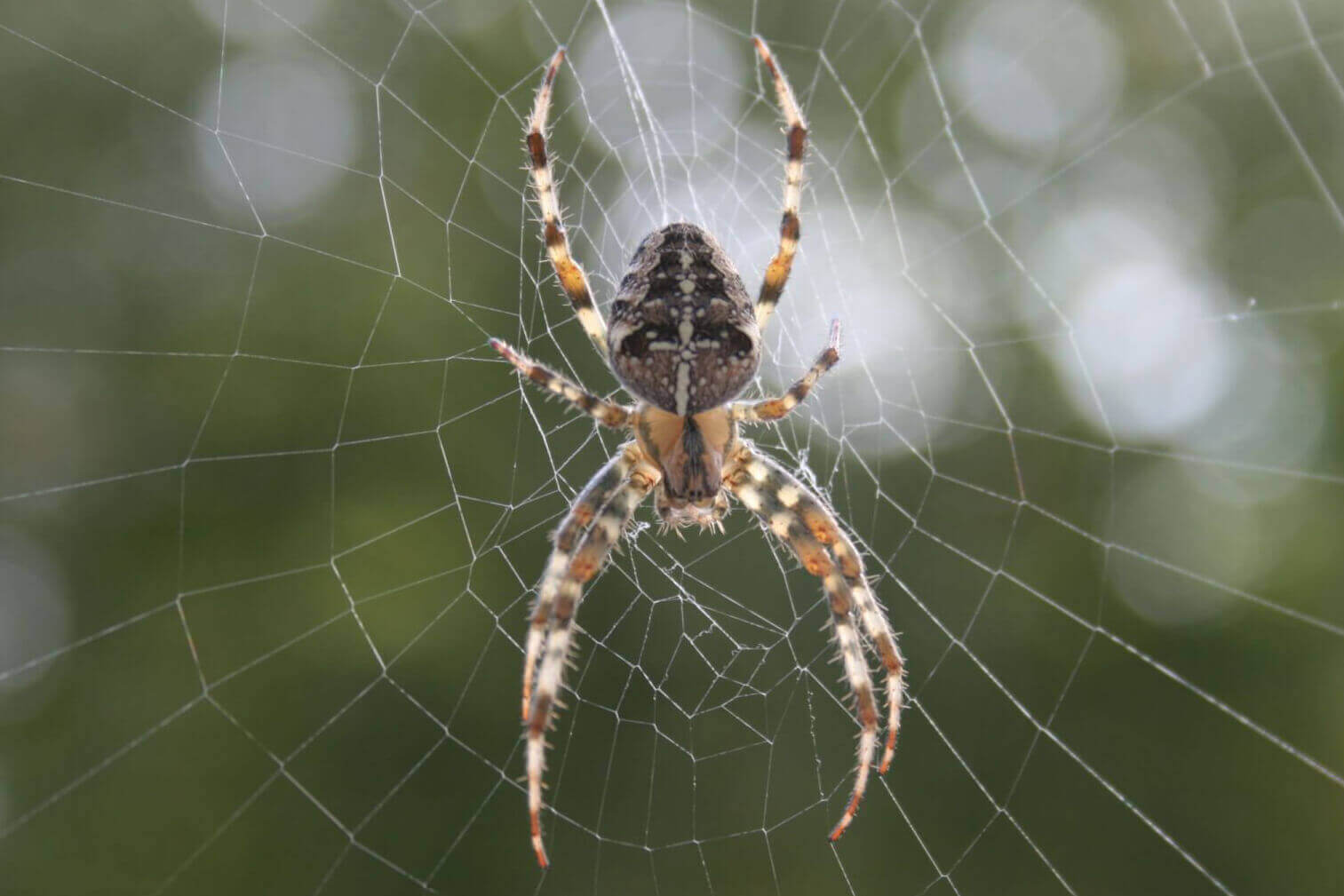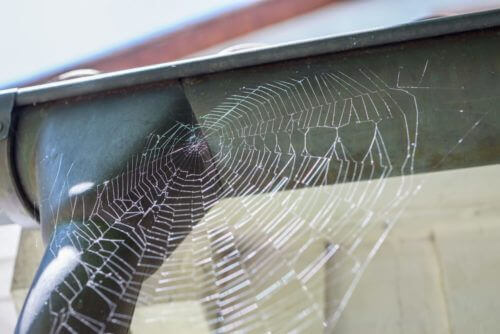Barn Spider Control & Treatments
Knowing how to identify a spider is your first step to controlling it.
What Do Barn Spiders Look Like

Barn spiders are predominantly yellow and brown in coloration with striped legs. Their undersides are typically black with white marks inside, although color ranges can be quite variable. They are about 3/4 of an inch long but can grow up to and above an inch long with large, round abdomens and are important to the ecosystem. Spider exterminators can help but you may miss out on the benefits of the insects these spiders like to eat. These spiders may or may not have a venomous bite. Their venom is considered non-toxic to most humans on the level of any other non-toxic insect bite. These spiders are aggressive toward each other, though. They attack each other if in close quarters, though many may inhabit the same structure or area at any given time.Not the spider you have?
where do barn spiders live
Barn spiders are most commonly found in rafters and wooden structures in suburban and rural structures or areas, and on boats near lakes, thus getting their name, “barn spider”. But they have no problem coming inside should the opportunity present itself or they are looking for food. When agitated (by a puff of air, for instance), these spiders sometimes bounce up and down in the center of their webs, possibly in an attempt to look larger and more threatening. This reaction could be due to their response to vibrations in the web when prey is trapped. Barn spiders shake or sway their webs to instigate further reaction from the prey caught within the web or to confirm that it was debris or other environmental disturbances (fallen leaves, sticks, etc.). They are also able to glean information about the object/insect, through the feel of the web as it shakes. If the spider senses a likely meal has been caught, they move to it and immediately begin wrapping it with silk.

Barn spiders are nocturnal. Like many other species of orb weavers, they take their webs down during daytime and build another every evening, consuming the silk from the previous web to conserve their resources. Their “orb” webs are constructed archetypically, with symmetrical spokes connected by a spiral inside. They hide during the day and at night sit in the middle of the web and wait for an insect to land on the web.
How did i get barn spiders
Some spiders are attracted to moisture, so they take shelter in basements, crawl spaces, and other damp areas inside a home. Other spiders prefer drier environments such as; air vents, high upper corners of rooms, and attics. Most common house spiders actually spend their entire lives indoors.
Barn spiders are carnivores, so they feed on other bugs. The more food supply there is, the more favorable your property becomes to them. So of course, barn spiders will come to your home and spin webs around it to catch this plentiful supply of insects. So if your New York, New Jersey, Connecticut, Delaware, or Pennsylvania home has their food source, it will also have barn spiders!
Barn spiders are carnivores, so they feed on other bugs. The more food supply there is, the more favorable your property becomes to them. So of course, barn spiders will come to your home and spin webs around it to catch this plentiful supply of insects. So if your New York, New Jersey, Connecticut, Delaware, or Pennsylvania home has their food source, it will also have barn spiders!
what Problems do barn spiders cause
Spiders get a bad rap for just being scary looking. In addition, their webs may be out of reach of your broom, making for an unkempt look in your home or business. They don’t cause any problems other than that, though. That doesn’t mean you want them in the house or break room with you! If you do have spiders and spider webs, it is an indication that there are other pests (their food) in your business or home. So, spider treatments will help with spider control and some may even help with the other insects that could be there as well.
how do i get rid of barn spiders
To keep barn spiders from entering your home (or barn) in the first place, seal cracks around the foundation of your home with a silicone-based caulk. Consider using yellow light bulbs for exterior lighting, as that may reduce the number of barn spiders and other insects that are typically attracted to white-light sources. Additionally, it’s good practice to consider using a dehumidifier in basements, cellars, and crawl spaces, since barn spiders thrive in moisture.
Be sure to store firewood at least twenty feet from the home on a raised structure to deter spiders – and plenty of other pests – from hiding out in the wood. Make sure to wear gloves when moving the wood, and inspect it carefully before bringing any indoors.
Inside, keep clothes and shoes from piling up on the floor and shake them out before putting them on. Also, consider using tightly sealed plastic boxes to store seldom-used items like boots, baseball mitts, skates, etc. in the basement, garage, or other dark areas.
Be sure to store firewood at least twenty feet from the home on a raised structure to deter spiders – and plenty of other pests – from hiding out in the wood. Make sure to wear gloves when moving the wood, and inspect it carefully before bringing any indoors.
Inside, keep clothes and shoes from piling up on the floor and shake them out before putting them on. Also, consider using tightly sealed plastic boxes to store seldom-used items like boots, baseball mitts, skates, etc. in the basement, garage, or other dark areas.
Why Western for barn spider control
We’re passionate about controlling spiders because we live and work here – it’s our neighborhood, too. With our almost 100 years of experience keeping homes and businesses in Connecticut, Delaware, New Jersey, New York, and Pennsylvania safe from pests, Western has the experience you can trust.
100% Satisfaction Guarantee
24-Hour Guaranteed Response
Board Certified Entomologists
Say goodbye to barn spiders.
GET MY QUOTE
